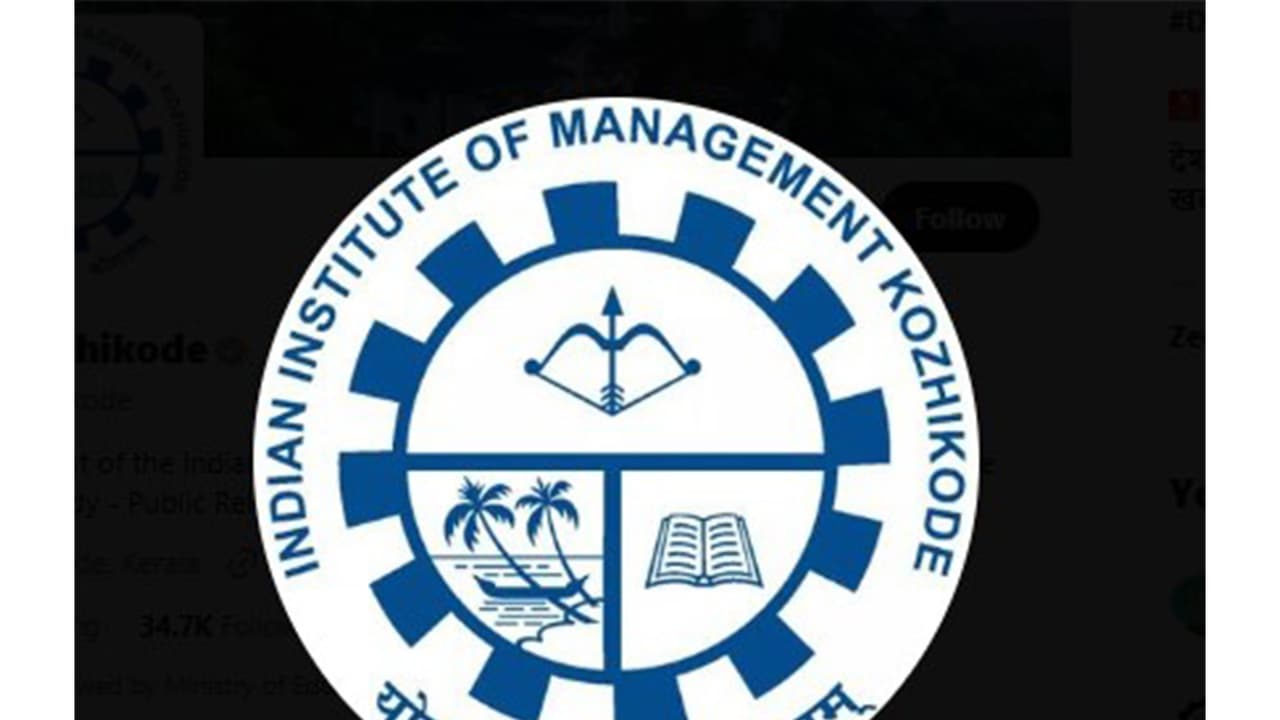The 6th IIMK Globalising Indian Thought (GIT 2025) conclave delves into ‘Lessons from Invisible India,’ exploring indigenous wisdom for sustainability, gender equity, and global cooperation as part of the Viksit Bharat @2047 vision.
The 6th edition of the Indian Institute of Management Kozhikode’s (IIMK) international conclave Globalising Indian Thought (GIT 2025) continued its proceedings on Wednesday, delving deeper into the theme “Lessons from Invisible India”, a press release said.
The conclave, which began on November 12, focuses on exploring India’s indigenous wisdom as a guiding framework for sustainability, gender equity, and global cooperation under the broader vision of Viksit Bharat @2047.
Inauguration and Keynote Addresses
The release further added that the event was inaugurated on Tuesday by Prof. Anil D. Sahasrabudhe, Chairperson of the National Educational Technology Forum (NETF) and Executive Committee, NAAC, and Ambassador Vikas Swarup, a former diplomat and acclaimed author of Q&A, in the presence of Prof. Debashis Chatterjee, Director of IIM Kozhikode. The inauguration was followed by a SPIC MACAY performance by Padma Shri flautist Pandit Ronu Mazumdar.
In his address, Ambassador Vikas Swarup commended IIM Kozhikode’s role in shaping India’s global thought leadership, noting that “institutions like IIM Kozhikode stand as living testaments to what Indian excellence looks like.” Emphasising India’s growing soft power, he said, “India’s soft power is about transformation, about how the world has begun to see us. It rests on our democracy, our development model, and our digital promise.” He added that India’s influence stems from its philosophy of empowering rather than overpowering, positioning the country as the natural voice of the developing world.
Prof. Anil Sahasrabudhe observed that “India’s century has arrived,” pointing to the nation’s rise as the world’s fourth-largest economy and its strong progress on the Global Innovation Index. He emphasised the importance of educational institutions serving as entrepreneurial ecosystems that foster innovation, collaboration, and purpose-driven leadership.
Setting the tone for the three-day conclave, Prof. Debashis Chatterjee, Director, IIM Kozhikode, said: “Globalising Indian Thought is about tapping the unmapped potential of India for the world. As we march toward Viksit Bharat @2047, our mission is to transform ancient wisdom into modern action – where work has meaning, women lead with strength, and the Indian worldview shapes a more compassionate, interconnected world.”
Deliberations on ‘Work, Women, and Worldview’
On the second day, deliberations continued around the 3Ws framework, Work, Women, and Worldview, through keynote sessions, panel discussions, and interactive dialogues. Padma Kiran Vyas, Founder of Tapovan Open University of Yoga & Ayurveda, France, highlighted India’s philosophy of balance between humanity and nature through Yoga and Ayurveda in his keynote address. He said India’s traditions offer the moral and spiritual compass the world needs to tackle the crises of climate and wellness.
Lalatiana Accouche, High Commissioner of Seychelles to India, lauded India’s partnership with Seychelles in areas such as healthcare and capacity building, describing it as an embodiment of the Globalising Indian Thought vision.
Shishir Priyadarshi, President, Chintan Research Foundation and former Director at the WTO, emphasised that India’s greatest contribution to the 21st century will not just be technology or trade, but thought — “where innovation is steered by inclusion, and growth is grounded in dignity, equity, and empathy.”
Prof. Debashis Chatterjee summarised the day’s discussions, saying, “The Conclave reaffirmed that India’s path to Viksit Bharat @2047 lies in harmonising Work, Women, and Worldview — the three dimensions of our collective consciousness.”
Panel Discussions on Sustainability and Workplace Culture
Among the day’s highlights was a panel discussion on “Ecological Swaraj: Reclaiming Indian Wisdom for a Sustainable Future.” The panel included Gopikrishna Warrier (Editorial Director, Mongabay India), Sridhar Radhakrishnan (Environmentalist), Prof. John Kurien (Centre for Development Studies), and Sruthi P.K. (Aralam Task Force). The discussion emphasised reimagining sustainability from the grassroots up and questioned the growing dependence on private-sector-led models that risk undermining social and ecological freedom.
Another panel, “Tolerance to Transformation: Addressing Misogyny at Work,” featured Titiksha Shrivastava (Lawyer-turned-Actor), Dipakshi Mehandru (Intel Corporation), Prof. Roberta Fida (Aston Business School, UK), and Deepthi Bopaiah (Former CEO & Board Member, GoSports Foundation). The session called for moving beyond tolerance to transformation through inclusion, respect, and cultural change in professional spaces.
Concluding Day Highlights
The three-day conclave will conclude on November 14 with sessions featuring Dr. Devi Prasad Shetty (Narayana Health), Erik Solheim (Former Executive Director, UN Environment Programme), Lt. Gen. A.K. Singh (Retd.), and Dr. Peeja Rajan (UN Women India). The event will close with a Bharatanatyam performance by Meenakshi Srinivasan, organised by SPIC MACAY. (ANI)
(Except for the headline, this story has not been edited by Asianet Newsable English staff and is published from a syndicated feed.)
